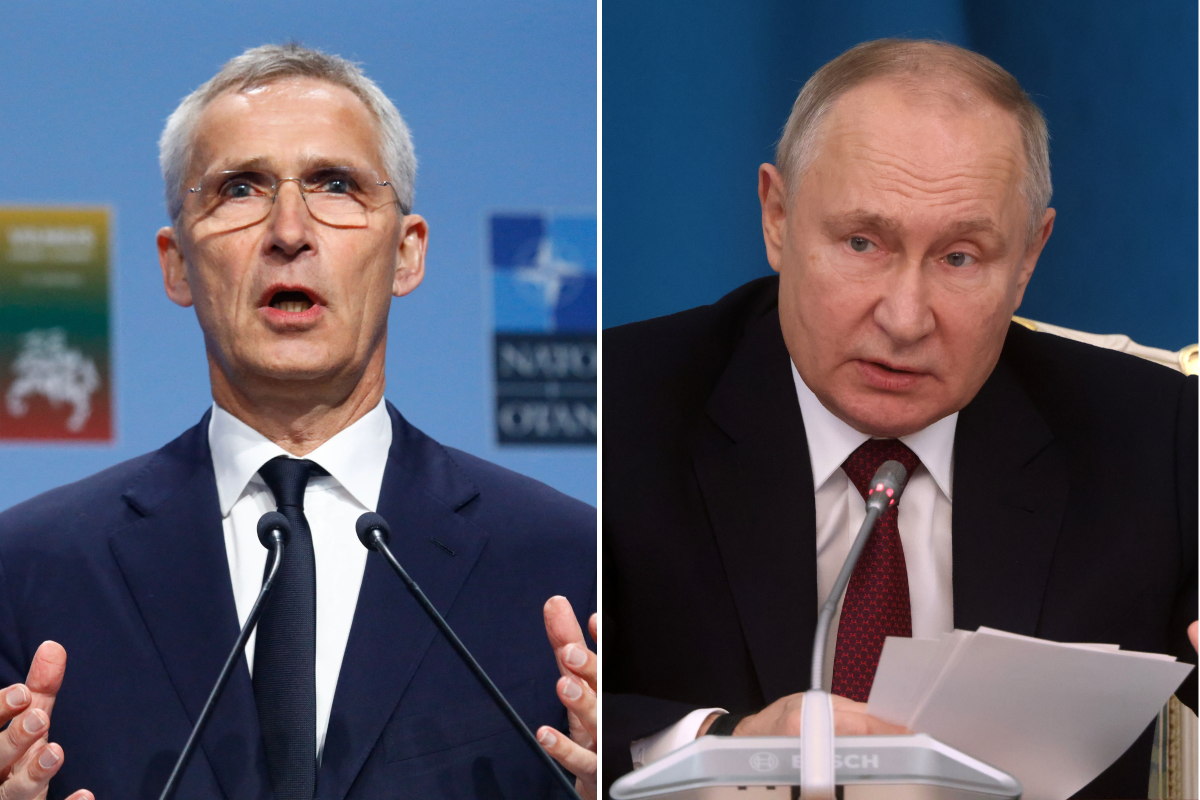Russia’s Nuclear Weapons Move Sparks NATO Fears
NATO Secretary General Jens Stoltenberg on Thursday said Russian President Vladimir Putin has made “the world more dangerous” by his decision to walk away from international nuclear agreements.
Stoltenberg made the comments during a Berlin press conference held after he met with German Chancellor Olaf Scholz. In criticizing Russia, the NATO chief cited Putin’s move earlier this year to terminate Russia’s participation in the New Strategic Arms Reduction Treaty (START), which was the last remaining nuclear arms agreement between the United States and Russia.
He also blamed Russia for ending the Intermediate-Range Nuclear Forces (INF) Treaty between Washington and Moscow in 2019 by violating the terms of the treaty. Stoltenberg then referenced a more recent example of an abandoned agreement: the Treaty on Conventional Armed Forces in Europe (CFE), which Russia dropped out of this week.
“Russia continues to undermine security in Europe” with such decisions, Stoltenberg said.

Photos by PETRAS MALUKAS/AFP/Getty Images
Of the decision to withdraw from the CFE treaty, Stoltenberg said, “Russia has revoked and walked away from every major arms control treaty.”
“This is a pattern of reckless behavior, and it makes the world more dangerous,” he added.
When reached for comment, a press representative for NATO told Newsweek in an email that “what the NATO Secretary General said stands.”
Newsweek also reached out to the Russian Ministry of Foreign Affairs via email.
Not mentioned by Stoltenberg was Russian Prime Minister Mikhail Mishustin signing an order on Thursday that eliminated his country’s agreement with Japan that aimed to reduce and contain nuclear stockpiles.
That agreement between Moscow and Tokyo came together in 1993 after North Korea stated that it would no longer negotiate with the International Atomic Energy Agency (IAEA).
In October, Russia’s lower house of parliament also unanimously voted to revoke Moscow’s ratification of the Comprehensive Nuclear Test Ban Treaty (CTBT), which prohibits “any nuclear weapon test explosion or any other nuclear explosion” anywhere in the world.
The CTBT was adopted in 1996 by the U.N. General Assembly and was ratified by Russia. The U.S. signed the treaty in 1996 but has not ratified it.
During his comments in Berlin, Stoltenberg said, “NATO remains fully committed to arms control, disarmament and non-proliferation. And we call on Russia to play a responsible role.”
He then shifted to talk of Russia’s invasion of Ukraine, which Putin launched in February 2022.
After praising Germany for its support of Ukraine, Stoltenberg called on NATO members to maintain their military aid to Kyiv.
“Russia continues its brutal war in Ukraine,” Stoltenberg said. “We must continue to give the Ukrainians the weapons they need to stay strong on the battlefield today, so they can be strong at the negotiating table tomorrow.”
Uncommon Knowledge
Newsweek is committed to challenging conventional wisdom and finding connections in the search for common ground.
Newsweek is committed to challenging conventional wisdom and finding connections in the search for common ground.


